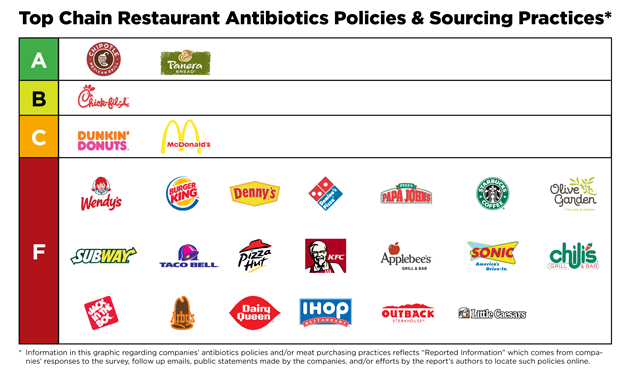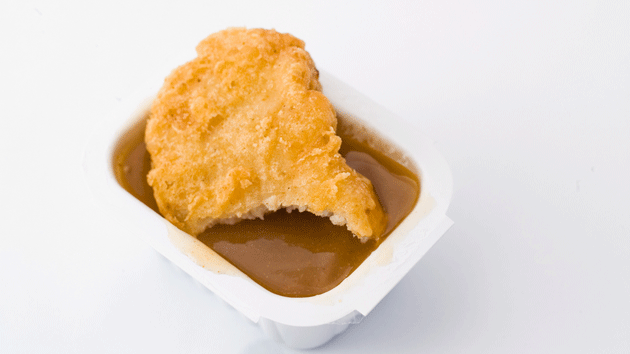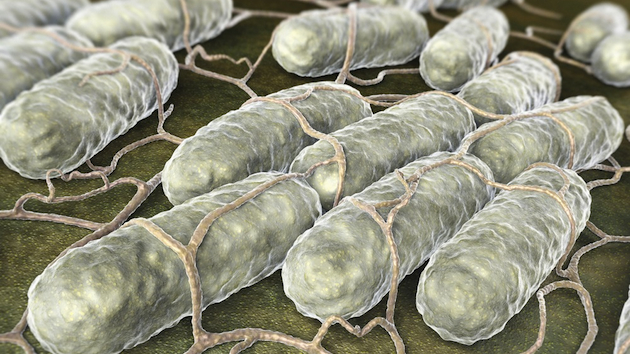Heads up, meat eaters: A new report has rated the antibiotic use in the meat of 25 top fast-food or “fast casual” restaurants, and the results are, well, concerning. The report by Friends of the Earth, the Natural Resources Defense Council, and four other consumer health organizations, examined antibiotic use as well as the restaurants’ transparency about their meat and poultry supply chains. Chipotle and Panera were the only chains to publicly report serving a majority of meat from animals raised without routine antibiotics.

The Centers for Disease Control and Prevention calls antibiotic resistance one of the top five health threats facing the nation, killing an estimated 23,000 Americans each year. “When livestock producers administer antibiotics routinely to their flocks and herds, bacteria can develop resistance, thrive, and even spread to our communities, contributing to the larger problem of antibiotic resistance,” the report explains. “The worsening epidemic of resistance means that antibiotics may not work when we need them most: when our kids contract a staph infection (MRSA) or our parents get a life-threatening pneumonia.”
In addition to sending each company a survey, the report authors examined company websites and other publicly available information. They intend for the report to be updated annually as companies change their practices.
Here’s a rundown of what researchers had to say about each restaurant (emphasis added):
- Panera and Chipotle are the only chains that publicly affirm that the majority of their meat and poultry offered is produced without routine use of antibiotics.
- Chick-fil-A and McDonald’s have established policies limiting antibiotic use in their chicken with implementation timelines.
- Dunkin’ Donuts has a policy covering all meats but has no reported timeline for implementation.
- While Starbucks has made positive statements supporting what it terms as ‘responsible use of antibiotics to support animal health,’ to our knowledge the company has failed to adopt a clear policy prohibiting routine use of antibiotics in its meat and poultry supply chains or to provide detailed public information on their purchasing practices.
- While Subway did not respond to our survey, recent news outlets report that the company’s goal is to ‘eliminate the use of antibiotics in products across the menu’ and that Subway is ‘targeting to transition to chicken raise without antibiotics important to human medicine in 2016.’…It is unclear whether this would entail the end of all routine antibiotic use in its supply chains.
- Burger King, Wendy’s, Olive Garden, KFC, Chili’s, Sonic, Denny’s, Domino’s, Starbucks, Papa John’s Pizza, Taco Bell, Pizza Hut, Applebee’s, Jack in the Box, Arby’s, Dairy Queen, IHOP, Outback Steakhouse, and Little Ceasars either have no disclosed policy on antibiotics use in their meat and poultry, or have policies that in our estimation allow for the continued, routine use of antibiotics in the production of all meats they serve.












